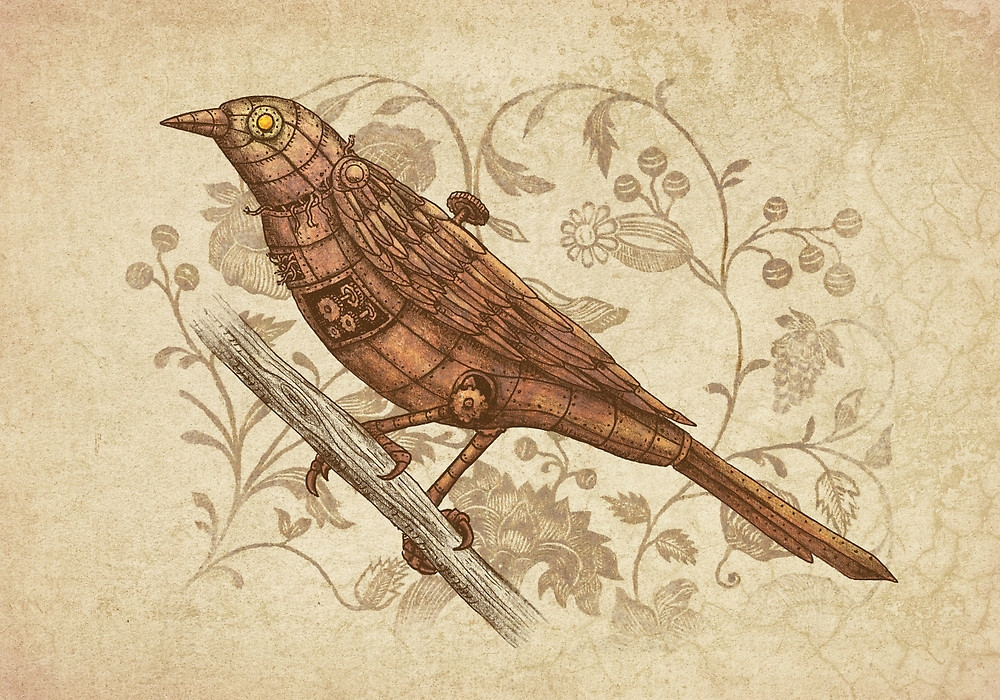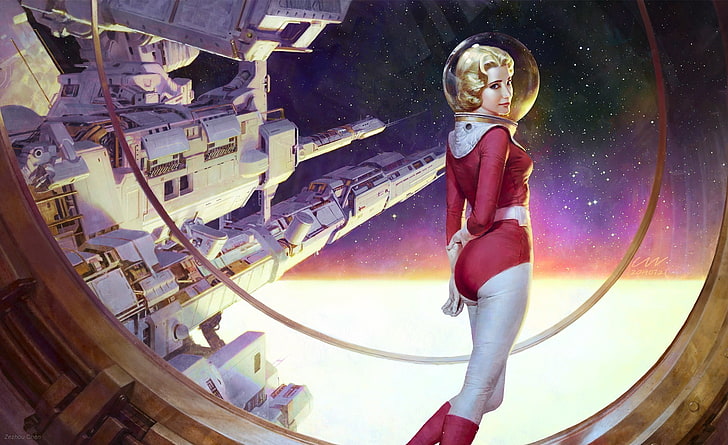In a myriad of ways, the future is now, but recent events force one to ponder if the current technological age is a budding utopia, or a vapid dystopia veered toward catastrophe…

by: Davis McKenna
Science Fiction writers of yore have repeatedly imagined what the future may look like. They have envisioned lunar bases, orbital hotels, flying cars, robots, and other wonders of science and technology. While some of their dreams have already come to fruition, there are many others that scientists and engineers are yet to turn into reality.
Humans are already being transported around in self-driving electric cars while their homes are fully equipped with lavish home entertainment systems pumping in news, laced with both fact and fiction, twenty-four hours a day. Many of us have means to tap into clean energy sources, have food security, and access to healthcare that were unimaginable just a century ago. From many points of view, it can be surmised we live our lives in a Science Fiction novel. The problem is, sometimes it’s hard to decide whether it is a budding utopia we are progressing into, or a dystopia heading toward the apocalypse.
More than half of the world’s population is connected to the internet today. We rely on it to keep in touch with our friends and family, to order food, to read the news bursting with the latest antics of our politicians, to learn more about technology and the latest iPhone features, and everything in between. Social networks now connect billions of people from all over the planet, allowing bits of information to reach all corners of the globe almost instantly. The internet is the most democratic institution ever invented, giving a voice to virtually anyone. But its greatest achievement is also its biggest problem. Over the years, it has become not just a forum for free idea exchange for the betterment of humanity, but also a mouthpiece for anti-science propaganda, often fueled by outrageous conspiracy theories.
One could make the argument that “what happens online, stays online,” but there can be real life consequences to misinformation spread online. For example, the 2019 Samoa measles outbreak was so widespread in part because of a massive drop in vaccinations due to dangerous anti-vaccine propaganda spread on social media. And it well known that 2016 U.S. Presidential Election was heavily influenced by manufactured news dispersed via the internet.
In most works of Fiction, space wars are fought against an invading alien race on a conquest to seize humanity’s resources or limit our expansion throughout the galaxy. In real life, in turn, the warring parties are divergent nations in conflict with one another. The “space race” that put a human on the Moon was fueled at least in part by two world superpowers’ (the United States and the Soviet Union) pride. Both were in aggressive pursuit of the prestige that comes with being the first nation to reach the surface of our closest neighbor. Today, things have become way more complicated. As the example of SpaceX has shown, there is a lot of money to be made in space — from launch contracts to freight, passenger transportation to satellite-based internet and communication service. The question “who will police Earth’s orbit” is becoming more actual than ever.
Back in the 1960s, the only two nations with space launch capabilities were the Soviet Union (later Russia), and the United States. Today, there are many other countries in the mix, including China, which recently landed the first-ever man-made object on the far side of the Moon and plans to assemble its own modular space station in the coming years. There are also are several private companies working on their own solution to launch cargo — and humans — into orbit as we speak.
The time will come when the legal status of “space” will have to be regulated. Currently, scholars are finding it problematic to delineate exactly where “space” starts. It’s scary to even imagine what conflicts the attempts to police it by one nation or another will trigger in the near future.
The end of the world — or more aptly put, the end of humanity — has been depicted in countless works of Fiction over the years. In some of these riveting depictions, life goes out with a boom (no matter if it’s man-made or natural). In others, with a whimper. Right now, the latter seems to be looming.
Science Fiction authors have imagined humanity dying from diseases ranging from a “superflu” that kills the majority of the population to mysterious viruses that turn people into walking “dead” with an insatiable hunger for flesh. These stories have become painfully relevant in the wake of the ongoing pandemic. COVID-19 has made it clear how fast a disease can reach global proportions. Humankind has been given the opportunity to behold a pandemic develop before their eyes, where in months a small outbreak reached global and devastating proportions. On top of this, there exists another menace hanging over our heads: Climate Change. Amid the increasingly extreme weather, the glaciers of Greenland melting beyond their point of no return, wildfires raging across the Amazon and Siberia, fire tornadoes reported in California, 2020 continues to feel like a Science Fiction disaster movie of the direct-to-video kind.





